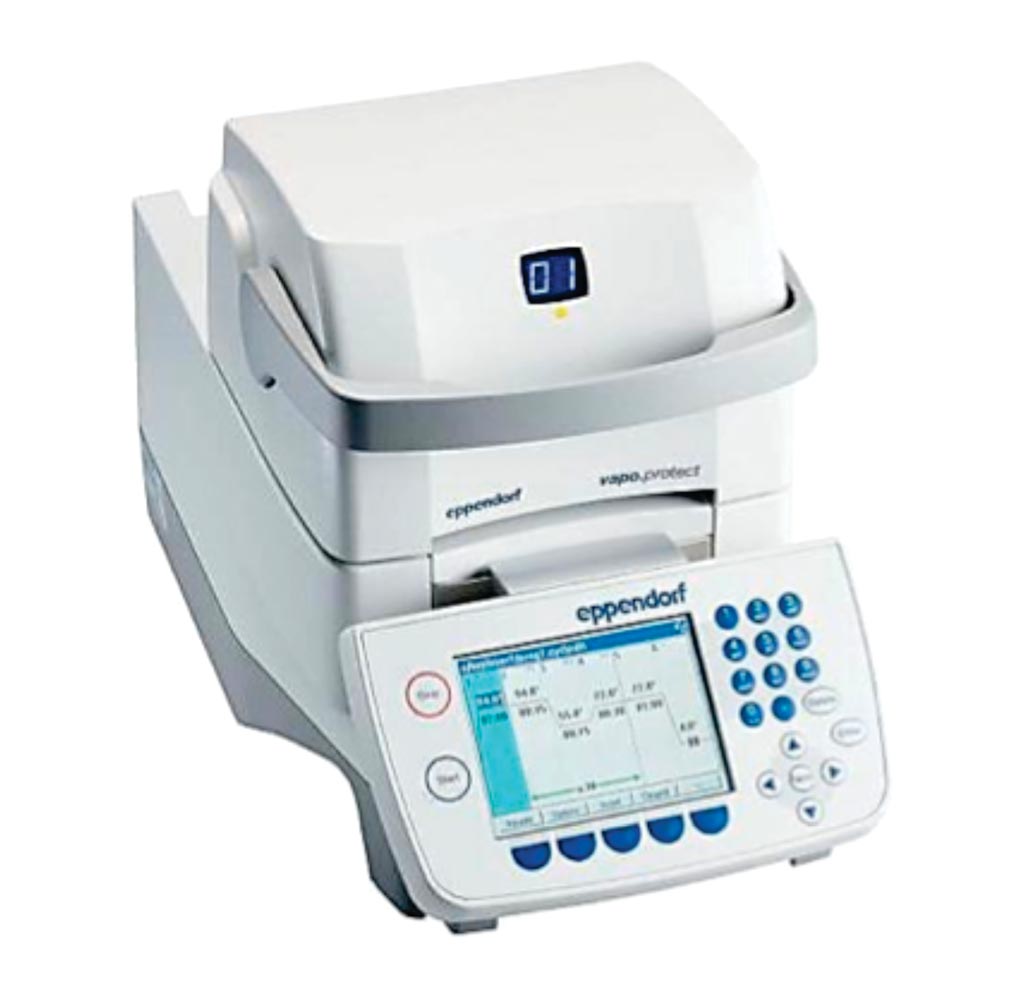Microbiome Helps Identify Patients with Early-Stage Cancer
By LabMedica International staff writers
Posted on 12 Feb 2019
Nearly 10,000 people are diagnosed with pancreatic cancer in the UK each year, with less than 1% surviving beyond ten years. An early diagnosis can greatly improve the chances of successful treatment, but this poses challenges for this disease as it grows deep inside the body and often shows few symptoms before it has already spread.Posted on 12 Feb 2019
Scientists are searching for biological changes that can accurately detect early signs of pancreatic cancer, which could be developed into new screening tests. A current hot topic is the potential role of the microbiome in the development of cancer, with previous studies identifying dramatic disruptions to bacteria in saliva, intestinal and fecal samples collected from pancreatic cancer patients compared to healthy individuals.

Image: The Mastercycler X50 for polymerase chain reactions (Photo courtesy of Eppendorf).
Scientists at Zhejiang University (Hangzhou, P.R. China) and their associates recruited a group of 30 patients with early-stage disease (diagnosed with a tumor positioned in the 'head' area of the pancreas) and a similar group of 25 healthy people. Participants were all between 45 and 65 years in age, had no other diseases or oral health problems and had not taken any antibiotics or other drugs for the three months before the study.
The team used sophisticated gene sequencing technologies to examine the microbiome diversity of tongue coat samples, finding that pancreatic cancer patients were colonized by remarkably different tongue coating microbiomes compared to healthy individuals. Microbial DNA was extracted using the Qiagen Mini Kit, was quantified using a Qubit 2.0 Fluorometer, and diluted to 10 ng/μL for PCR amplification in an Eppendorf Mastercycler thermocycler.
The team reported that there was a striking difference of the abundance of four types of bacteria: low levels of Haemophilus and Porphyromonas and high levels of Leptotrichia and Fusobacterium, could distinguish pancreatic cancer patients from healthy individuals. The team hypothesized that the immune system is the most likely link between any confirmed shifts in the microbiome with pancreatic cancer. For example, disease development in the pancreas may influence the immune response in ways that favor the growth of certain bacteria or vice versa.
The authors concluded that complete characterization of the gastrointestinal, saliva and tongue coating microbiomes, and alterations in the microbiotic communities in pancreatic head carcinoma (PHC) patients compared with healthy controls could potentially lead to the development of early diagnostic or preventive tools for PHC. The study was published on January 28, 2019, in the Journal of Oral Microbiology.
Related Links:
Zhejiang University













